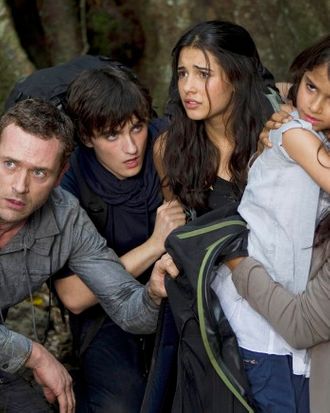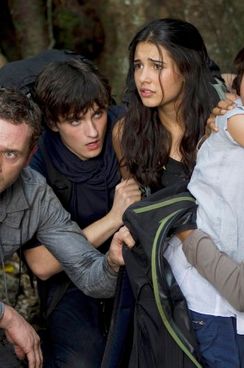

Steven Spielberg is known for revisiting similar themes in his films (families divided and reunited, small bands against giant threats, etc.), but his big-screen work usually transcends the vaguely sanitized, family friendly clich├®s many associate with his brand. Even when you look at his earliest films, you see that theyÔÇÖre much more complicated than the stereotypes imply: E.T. is a lot darker than you remember; Close Encounters of the Third Kind is mysteriously open-ended; and even Raiders of the Lost Ark, while willfully old-fashioned, could still give the best horror movie a run for its money in the gore and shock department. And yet, when it comes to his TV fantasy-action series ÔÇö Seaquest DSV, Falling Skies, and now Terra Nova ÔÇö the filmmakerÔÇÖs tropes can conform to the worst generalizations of his work. You feel like youÔÇÖre watching the result of an executive yelling at some TV journeyman, ÔÇ£Gimme something that feels like Spielberg!ÔÇØ ┬à except that the executive in this case is Spielberg himself.
On the TV shows, however, being an orphan, much like having lost a child, is used either as a simple plot contrivance or as instant, just-add-water character development. In Seaquest, there was a lame episode in which the crew encountered a ship full of orphans and had to  well, not exactly do battle with them, but just kind of convince them not to resist too much. In Falling Skies, the teen orphans Karen Nadler (Jessy Schram) and Lourdes (Seychelle Gabriel) gravitate to the Mason family: Friends 4-eva! And in Terra Nova, we can already sense that the beautiful teenage loner Skye (Allison Miller) is going to become a love interest to the brother and a big sister figure to the girls in the family. Will the show be able to do more with this character? We hope so, but if history has proven anything, it wont. And her parents will probably turn out to be alive, too.


